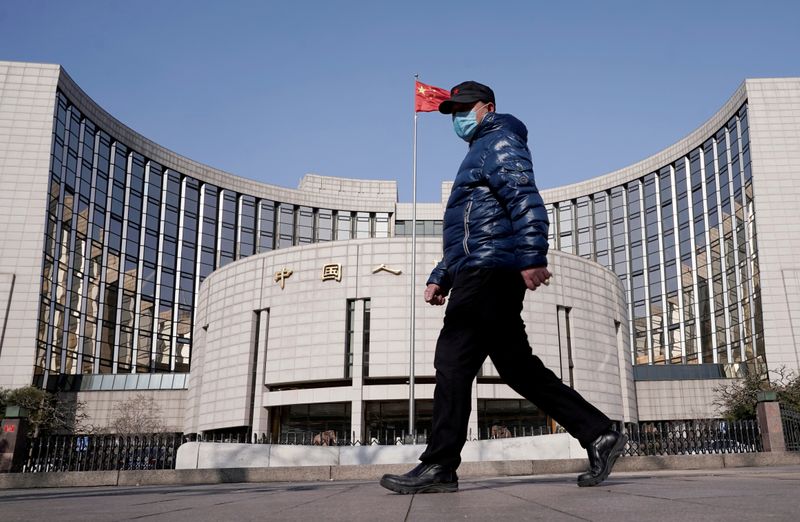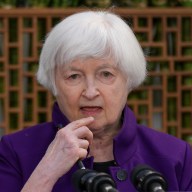BEIJING (Reuters) – China’s central bank has called for wider acceptance of cash in economic activities and vowed to punish those who refuse to accept cash payments in the wake of a widening gap in access to digital services.
China’s online payments via barcodes and third-party payment apps such as Ant Group’s Alipay and Tencent Holdings’ Tenpay have gained in popularity over the years on government policies to promote innovation.
Some merchants and institutions have become reluctant to accept cash due to reasons such as cost control or user experience, with the trend accelerated by the COVID-19 pandemic, the People’s Bank of China (PBOC) said in a notice on Tuesday.
“Renminbi (yuan) cash is the most basic means of payment. Entities or individuals cannot refuse to accept it,” the PBOC said, adding that the central bank will investigate and punish firms or individuals that refuse to accept cash or adopt discriminatory measures against cash payments.
In a separate statement, the central bank said payments of some basic public services such as medical treatment, water, electricity and gas fees have gradually migrated online.
The transition has left the elderly behind, as it is more difficult for some of them to adapt to the new digital technologies compared with younger people, it said.
“The innovation of consumption and payment methods should be conducive to…protect people’s livelihood and enhance the public’s sense of happiness,” the PBOC said in the notice.
The PBOC urged that all entities and individuals should not discriminate or carry out any inconvenient measures to exclude cash payment and create “gaps of digitalisation”.
“Non-bank payment institutions must not promote the concept of cashless or discriminatory means of cash payment in any forms,” it said.
(Reporting by Cheng Leng,Stella Qiu and Kevin Yao; Editing by Jacqueline Wong)











